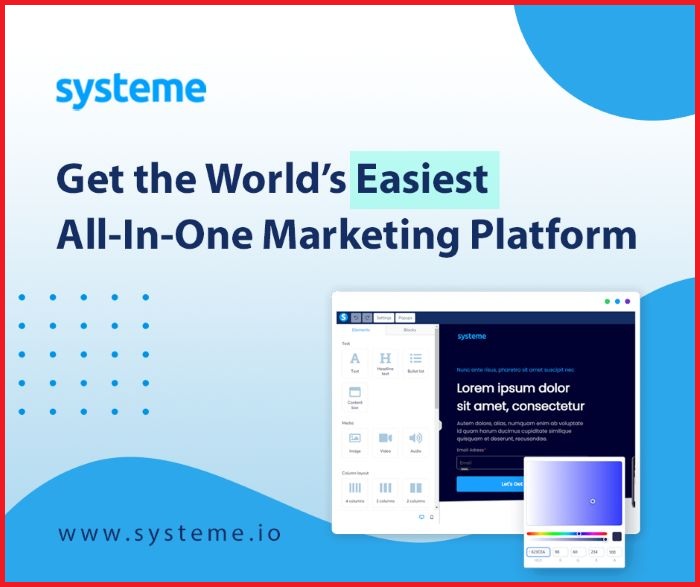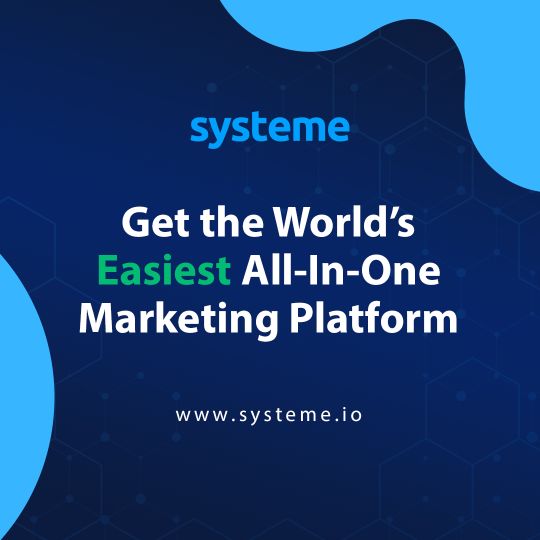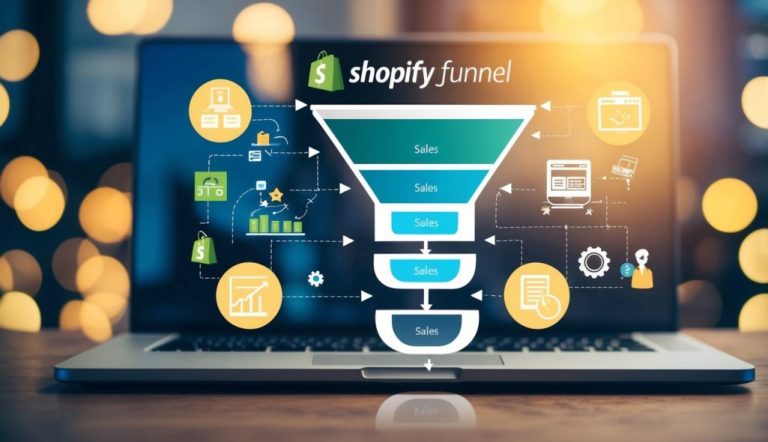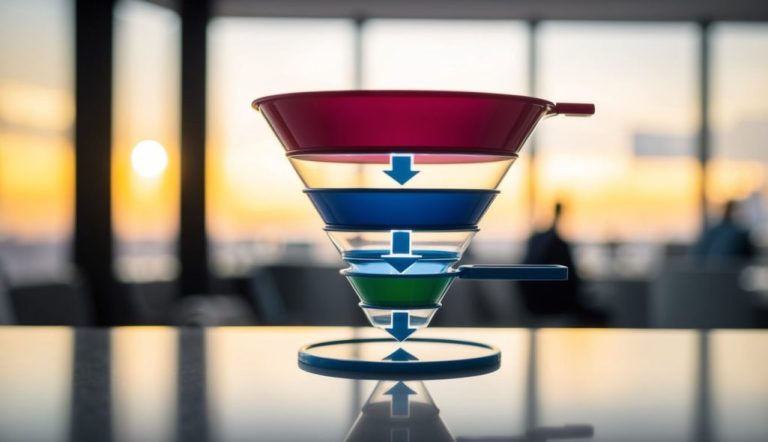A marketing automation specialist plays a crucial role in today’s digital landscape, leveraging software to streamline, automate, and measure marketing tasks and workflows. Your expertise in this field means you are adept at both the technical and creative aspects of digital marketing. As a marketing automation specialist, you’ll spend your days designing targeted marketing campaigns, analyzing customer data, and implementing systems that increase efficiency and improve conversion rates.

To excel in this role, you must understand various marketing automation tools and software. Mastering these will enable you to craft personalized customer journeys that lead to better engagement and more sales. You’re operating behind the scenes and at the forefront of marketing technology trends, adjusting strategies to align with the ever-evolving digital world. Your work environment might vary, but your skills can open up opportunities in many sectors, including agencies, corporate settings, or as an independent consultant.
Key Takeaways
- Marketing automation specialists manage and optimize digital marketing campaigns.
- Proficiency in marketing automation tools is necessary for effective campaign execution.
- Specialists must adapt to new trends to stay relevant in various work environments.
Defining Marketing Automation
Marketing automation is using software and AI to automate marketing tasks and workflows. It optimizes your efforts across multiple channels, offering personalized experiences to users.
The Role of AI in Marketing Automation
AI plays a pivotal role in enhancing the capabilities of marketing automation. It enables scale personalization by analyzing large data sets to predict user behavior and preferences. Your marketing campaigns can become more effective as AI identifies the optimal times and content for engaging with customers.
Benefits of Marketing Automation
The benefits of marketing automation are numerous:
- Efficiency: It streamlines marketing processes, saving you time and resources.
- Lead Management: Automating the nurturing of leads ensures that they’re followed up promptly and consistently, increasing the conversion rate.
- Analytics: You get detailed insights into campaign performance, which helps in making informed decisions.
Marketing Automation Platforms Overview
Marketing automation platforms are the tools that bring automation to life. Here’s a quick overview:
- Examples: Well-known platforms include HubSpot, Marketo, and Salesforce Pardot.
- Features: These platforms offer email marketing automation, lead scoring, and CRM integration features.
- Selection: Select a platform that fits your business size and needs. Each offers unique benefits, from user-friendliness to complex, customizable workflows.
Becoming a Marketing Automation Specialist
Embarking on the journey to becoming a marketing automation specialist involves a blend of formal education, acquiring essential skills, and obtaining certification in the field. Each step is crucial to ensure you’re equipped with the expertise needed in this dynamic profession.
Educational Background
To enter the field of marketing automation, you typically need a bachelor’s degree. Employers often prefer a marketing, advertising, or communications degree, which provides a solid foundation in core marketing principles. Subjects like data analysis, technology, and digital marketing are particularly relevant and can give you a competitive edge in the job market.
Essential Skills for a Specialist
To thrive as a marketing automation specialist, you should cultivate a mix of technical and soft skills:
- Technical Skills: You’ll need proficiency in various areas, including CRM software, email marketing platforms, analytics tools, and database management.
- Soft Skills: Strong analytical thinking, effective communication, and project management are critical for interpreting data and executing campaigns.
Your success in this role hinges on your ability to merge creativity and technical know-how.
Certifications and Training
Enhancing your qualifications with professional certifications and training is a proactive way to demonstrate your commitment to the field. Look into certifications offered by leading marketing automation software providers, which can be pivotal in staying current with the latest tools and techniques. Continuous learning through online courses or workshops will bolster your expertise and signal to employers your dedication to maintaining a cutting-edge skill set.
Marketing Automation Tools and Software

As a marketing automation specialist, it’s crucial to have a firm grasp of the software that can streamline your campaigns and processes. This section will take you through some of the prominent tools that are shaping the marketing automation landscape.
Popular Tools Overview
The marketing automation space is bustling with various tools designed to cater to the different needs of marketers. HubSpot is renowned for its all-in-one marketing suite that helps manage inbound marketing, sales, and customer service. Conversely, Marketo is a robust marketing automation platform ideal for lead management and account-based marketing strategies. Another key player is Salesforce Marketing Cloud, providing a comprehensive suite for personalized customer engagement. Additionally, tools like Eloqua offer advanced marketing automation, targeting, and segmentation features.
- HubSpot: All-in-one inbound marketing, sales, CRM
- Marketo: Lead management, account-based marketing
- Salesforce Marketing Cloud: Customer journey, engagement
- Eloqua: Campaign design, targeting, segmentation
Understanding Marketo and HubSpot
When examining Marketo, you’ll find it’s a powerhouse for enhancing lead management and streamlining marketing campaigns across multiple channels. Its use of lead scoring and behavioral tracking helps tailor your approach to meet consumer needs. In contrast, HubSpot might be your best pick if you’re looking for an easy-to-use platform that offers marketing, sales, and CRM capabilities. Its intuitive design and ample resources make it particularly friendly for newcomers to marketing automation.
- Marketo: Advanced lead scoring, behavioral tracking
- HubSpot: User-friendly, integrated CRM functions
Salesforce Marketing Cloud Certification
To fully leverage Salesforce Marketing Cloud, consider obtaining certification. This credential verifies your expertise in navigating the platform’s intricacies, from managing customer journeys to crafting targeted marketing strategies. The certification process ensures you can make the most of Salesforce’s extensive automation tools and analytics—critical components for any savvy marketer.
- Salesforce Marketing Cloud Certification: Validates skills, customer journey, targeted strategies
By understanding these tools and perhaps even becoming certified, you’ll be well-equipped to make informed decisions that can elevate your marketing game.
Designing Effective Marketing Campaigns

When you’re tasked with designing marketing campaigns, you should build structured strategies that resonate with your target audience and leverage your data to create personalization. The subsections below will guide you through planning and managing campaigns, email marketing best practices, and using data for personalization.
Campaign Planning and Management
Planning your marketing campaigns is like setting a foundation for a house. It would be best to have a solid plan and reliable management practices to ensure success.
- Define Objectives: Start by setting clear, measurable goals. What do you want to achieve? It could be increased sales, lead generation, or boosting brand awareness.
- Understand Your Audience: Gather insights on your audience to tailor your campaigns effectively. Knowing your customer is paramount.
- Select the Right Tools: Utilize marketing automation software that aligns with your campaign objectives and simplifies your workflow.
Email Marketing Best Practices
Email marketing remains a crucial component of effective marketing campaigns. Your email marketing campaigns should be:
- Targeted: Segment your email lists to send relevant content to the right people.
- Engaging: Use compelling subject lines and personal touches to increase open rates and engagement.
- Consistent: Maintain a regular sending schedule, but avoid bombarding your subscribers. Quality trumps quantity.
Utilizing Data for Personalization
Personalization is not just a buzzword; it’s a proven strategy to increase the effectiveness of your marketing campaigns.
- Collect Data: Use every interaction to collect data about preferences, behavior, and demographics.
- Analyze Data: Employ analytical tools to make sense of the data you collect. Look for trends and patterns.
- Apply Insights: Take what you’ve learned from your data to hyper-personalize your campaigns, from emails to landing pages.
Remember, every bit of personalized content can significantly boost your campaign’s relevance and effectiveness.
Data Analysis and Reporting
As a Marketing Automation Specialist, you play a crucial role in deciphering vast amounts of data to extract actionable insights. Your data analysis and reporting expertise ensures marketing strategies are data-driven and results are measurable.
Analytics and Insights
Your primary task is to translate raw data into insights. This involves using a variety of tools to analyze performance metrics and KPIs. For instance, you might find that implementing marketing automation tools streamlines workflow and provides deep insights into campaign effectiveness.
Customer Behavior Analysis
Understanding customer behavior is where your analytical skills genuinely shine. You observe and report how customers interact with marketing campaigns, which channels they prefer, and what content resonates best with them. The data you gather can pinpoint trends, such as increased engagement following personalized email campaigns.
Continuous Improvement
The cycle of data reporting is vital for continuous improvement. Your reports should lead to iterative changes and optimization of marketing strategies. By analyzing past performance data, you prepare scenarios to forecast potential outcomes, helping to refine tactics for better results in future campaigns.
Implementing Automation Strategies
When you implement automation strategies, you streamline your marketing efforts to create seamless campaign management and lead generation processes. Let’s dive into how you can put these strategies into action.
Developing Automation Workflows
Your journey begins with designing automation workflows. This is where you map out each step a lead will take through your marketing funnel. Start by identifying key actions and triggers that will move leads down the path to conversion. It’s like building a digital roadmap: each signpost is an automated action tailored to guide your prospects closer to a sale.
Campaign Setup and Execution
Next, talk about the nuts and bolts—campaign setup and execution. This phase is about putting those workflows into motion. Automation tools aid you in scheduling emails, social media posts, and other communications with precision. Remember, consistent and timely follow-ups are essential, so use your tools to sync these tasks with your lead’s behavior.
- Craft tailored messages for different audience segments.
- Schedule the distribution of content for optimal engagement.
Lead Generation Techniques
Finally, lead generation techniques are the lifeblood of your strategy. Use automation to capture and score leads based on their interactions with your brand. It helps to:
- Deploy forms and landing pages to collect vital lead information.
- Analyze lead behavior to personalize future communications and offers.
Integrating these components within your automation strategies bolsters your marketing implementation and paves the way for more effective campaign management and lead generation.
Marketing Technology and Trends
Staying abreast of the latest technology and trends in the ever-evolving marketing field is crucial for success. Every tool and strategy you employ can significantly impact your business, from sophisticated marketing automation platforms that streamline campaigns to SEO and SEM tactics that ensure your content ranks well.
The Importance of SEO and SEM
Search Engine Optimization (SEO) and Search Engine Marketing (SEM) are fundamental in making your website visible to potential customers. By optimizing your content with targeted keywords, your site is more likely to appear at the top of search results, driving organic traffic. Meanwhile, SEM involves paid strategies, like pay-per-click (PPC) advertising, which can quickly boost your visibility on platforms like Google and Bing.
Utilizing Social Media
Your social media presence can be enhanced using marketing automation tools to schedule posts, track engagement, and analyze the performance of your content. Platforms like Facebook, Twitter, and Instagram are powerful channels to connect with your audience, and crafting engaging content tailored to these platforms is essential for building relationships and promoting your brand.
Emerging Technologies in Marketing Automation
Staying ahead means keeping an eye on cutting-edge technologies. Artificial intelligence (AI) and machine learning are at the forefront, offering more intelligent analytics and automation capabilities to anticipate customer behavior and personalize communications. Chatbots and predictive lead scoring are just a few examples of how these technologies can augment your marketing efforts.
Work Environments and Opportunities
In the dynamic field of marketing automation, you’re likely to find a variety of work environments and opportunities to suit your preferred work style and career goals. Whether you’re seeking a steady office position or remote flexibility, there’s a place for you in this evolving industry.
Full-Time and Part-Time Roles
Full-time roles in marketing automation provide you with a stable and consistent work environment, often including employee benefits and structured career progression. If balance is a crucial concern, part-time positions can offer you more flexibility to manage personal responsibilities or pursue other interests. It’s common to find marketing automation specialist jobs providing both options to accommodate diverse needs.
Remote and Hybrid Work Options
Remote positions allow you to work from anywhere and design your ideal workspace at home. On the other hand, hybrid roles blend the best of both worlds; you can enjoy the camaraderie and direct collaboration of in-office work with the flexibility of remote work. This blend is increasingly common in Marketing Automation teams, making them adaptable and accessible regardless of your location.
Career Growth and Development
As a marketing automation specialist, your career growth is tied to the continuous development of your skills and the depth of your experience. With the demand for automation skills rising, prospects for advancement are robust. Each role can be a stepping stone to more significant opportunities, from managing campaigns to leading a marketing automation team. Initiative and a proactive approach to learning are critical to your career advancement.
Advanced Marketing Automation Topics
In your journey to mastering marketing automation, advanced topics are pivotal in elevating your strategies. You’ll explore the nuances of large-scale campaigns, tailor your approach to different business contexts, and discover the power of integrating CRM systems.
Enterprise-Level Campaign Strategies
On an enterprise scale, your marketing automation must address complex demand generation campaigns that can run across various channels and target diverse customer segments. Creating a seamless brand experience would be best by automating personalized content delivery and tracking campaign performance to optimize in real-time.
Marketing Automation in B2B and B2C Contexts
When tailoring marketing automation for B2B and B2C scenarios, understand that B2B strategies typically require nurturing leads over a longer cycle with detailed informational content. At the same time, B2C campaigns benefit from triggering immediate purchases through emotional and short-term offer campaigns. Your marketing automation tools can be configured to cater to these differing approaches by analyzing customer behavior and streamlining communication accordingly.
Integrating Customer Relationship Management
Integrating marketing automation with your Customer Relationship Management (CRM) system unlocks advanced personalization strategies. You can preempt customer needs and initiate actions across your marketing channels by leveraging rich customer data. Remember, the more harmonized your CRM and marketing automation efforts are, the more you can enhance customer experiences and drive conversions.
Frequently Asked Questions
In this section, you’ll discover the core aspects of becoming and working as a marketing automation specialist, from the skills you need to the tools you should be familiar with.
What are the essential skills required for a marketing automation specialist?
To thrive as a marketing automation specialist, you must have a firm grasp of digital marketing principles, proficiency with automation software, and a deep understanding of data analysis to inform strategies. Technical skills, such as knowledge of HTML and email marketing best practices, are also valuable.
What does a typical day in the life of a marketing automation specialist involve?
Your day typically includes creating and managing marketing campaigns, analyzing performance data to optimize future campaigns, and staying current with the latest marketing technologies. Collaboration with other marketing team members is also crucial to your daily routine.
How can someone start a career as a marketing automation specialist?
Starting a career in marketing automation typically involves gaining a foundational education in marketing or a related field, followed by hands-on experience with marketing automation platforms. Enhancing your skill set through online courses or workshops on specific tools can also be beneficial.
What are some standard marketing automation tools that specialists use?
Standard tools include CRM systems, email marketing platforms, and analytics tools that help create, execute, and measure the success of marketing campaigns. Familiarity with platforms like HubSpot, Marketo, and Pardot is often required.
What certifications can help further a marketing automation specialist’s career?
Certifications from established providers of marketing automation software, such as HubSpot Academy or Salesforce’s Pardot certification, can significantly enhance your credentials and demonstrate your expertise to potential employers.
How does the role of a marketing automation specialist differ from that of an email automation specialist?
As a marketing automation specialist, your role encompasses a broader scope of responsibilities, engaging with various channels and tools beyond just email. On the other hand, an email automation specialist focuses primarily on creating and optimizing email campaigns within the marketing automation system.





